Intelligent Digital Patients
Clinical Skills Training, Redefined for the Future
PCS Spark is an AI-driven virtual healthcare simulation platform designed to enhance the clinical skills training experience for medical and nursing schools.
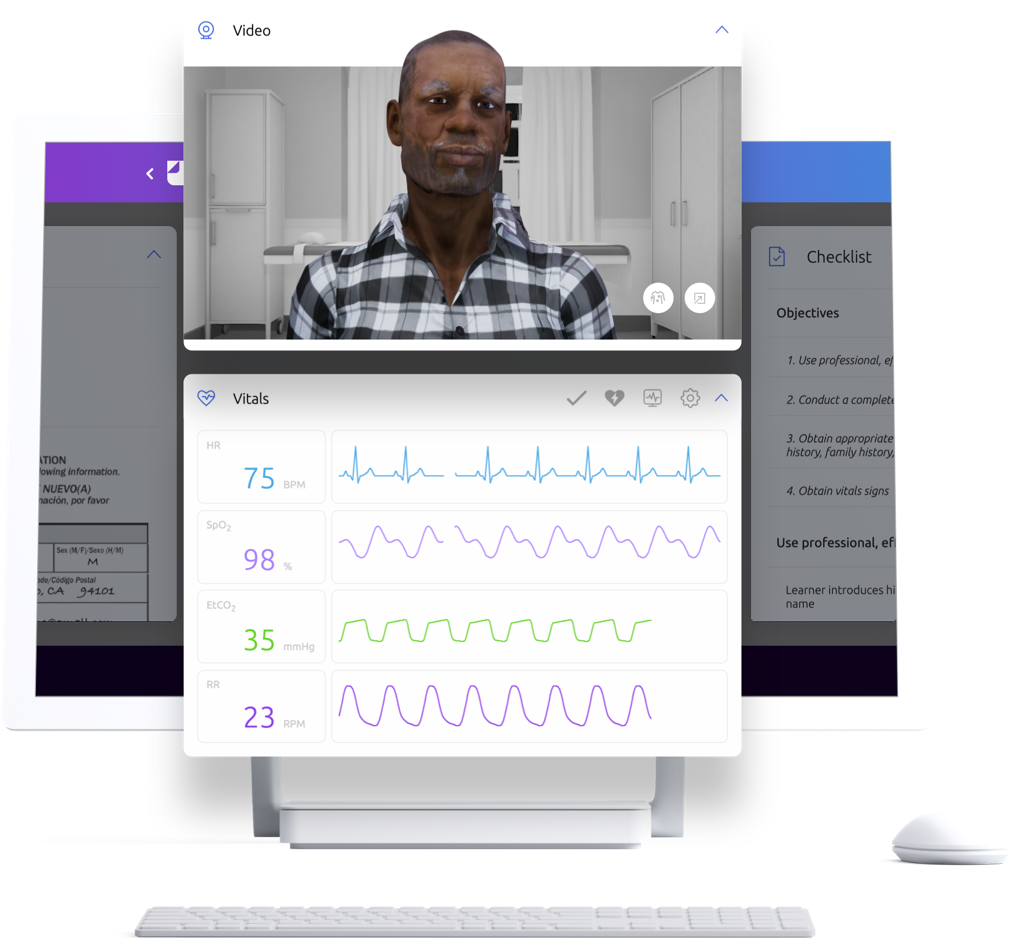
What is Spark?
Spark is a virtual simulated patient platform that delivers simulated clinical experiences to healthcare students.
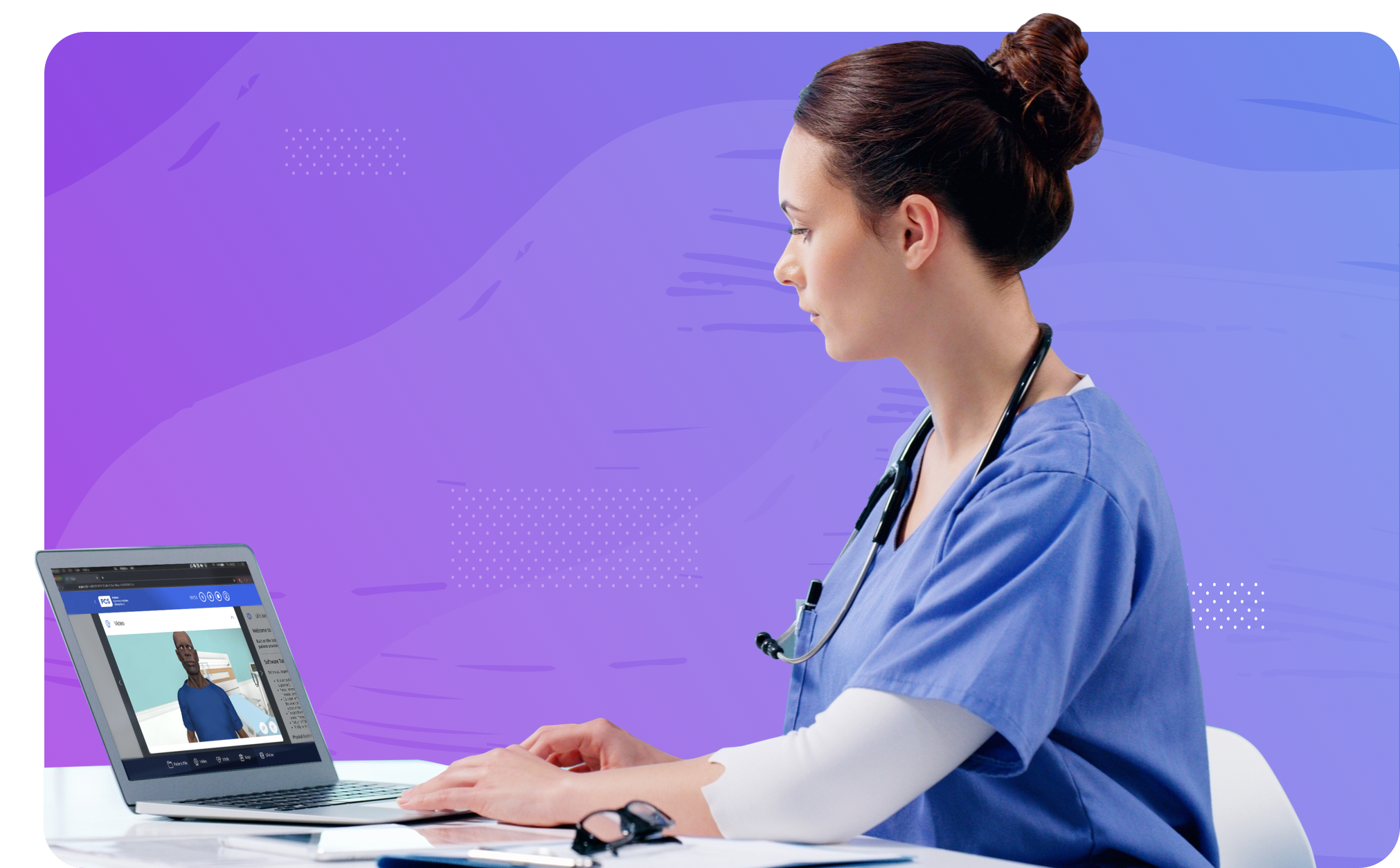
Comprehensive Training
Simulate real-life patient interactions with AI-driven conversations and physical assessments.

AI Driven Conversations
Spark leverages a bespoke AI and speech technology to deliver a higher level of conversational fluency during patient health interviews, creating a more realistic patient-provider interaction experience during simulations.

Robust Physical Exam
Learners can perform head-to-toe assessments on virtual patients, conduct vital signs assessments, use various diagnostic instruments, practice the examination sequence, and explore normal and abnormal findings through text or multimedia resources.

Automated Assessment
AI/Assessment provides AI-based automated evaluation of learner performance on both specific actions and generic communication frameworks.

Multi-player Mode
TeamSpace enables learners from different locations to collaborate seamlessly on a single patient encounter. Use TeamSpace’s audio or text chat to discuss diagnostics, findings, management, and treatment options, allowing the team to collaboratively decide on the best course of action.
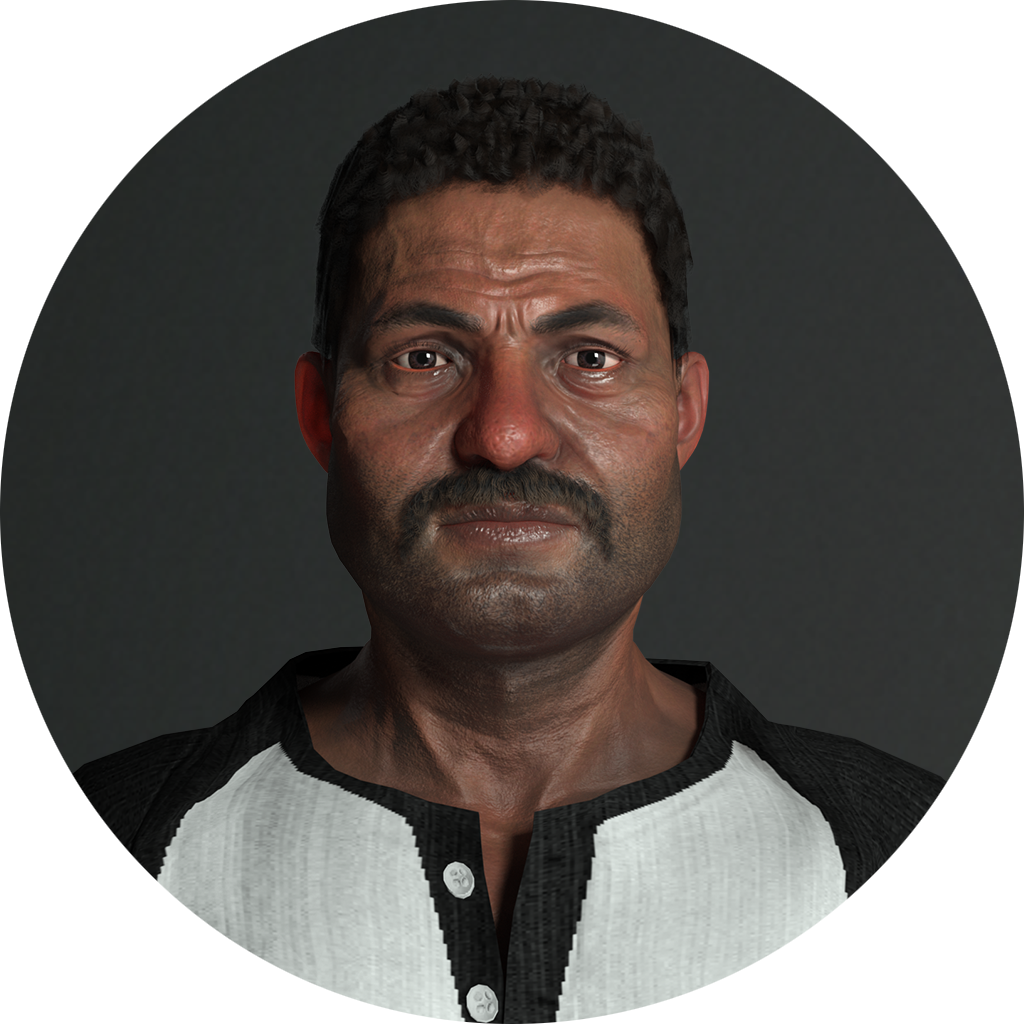
Diverse Avatars
Simulate in various settings with a wide range of patient appearances to enrich the learning experience.
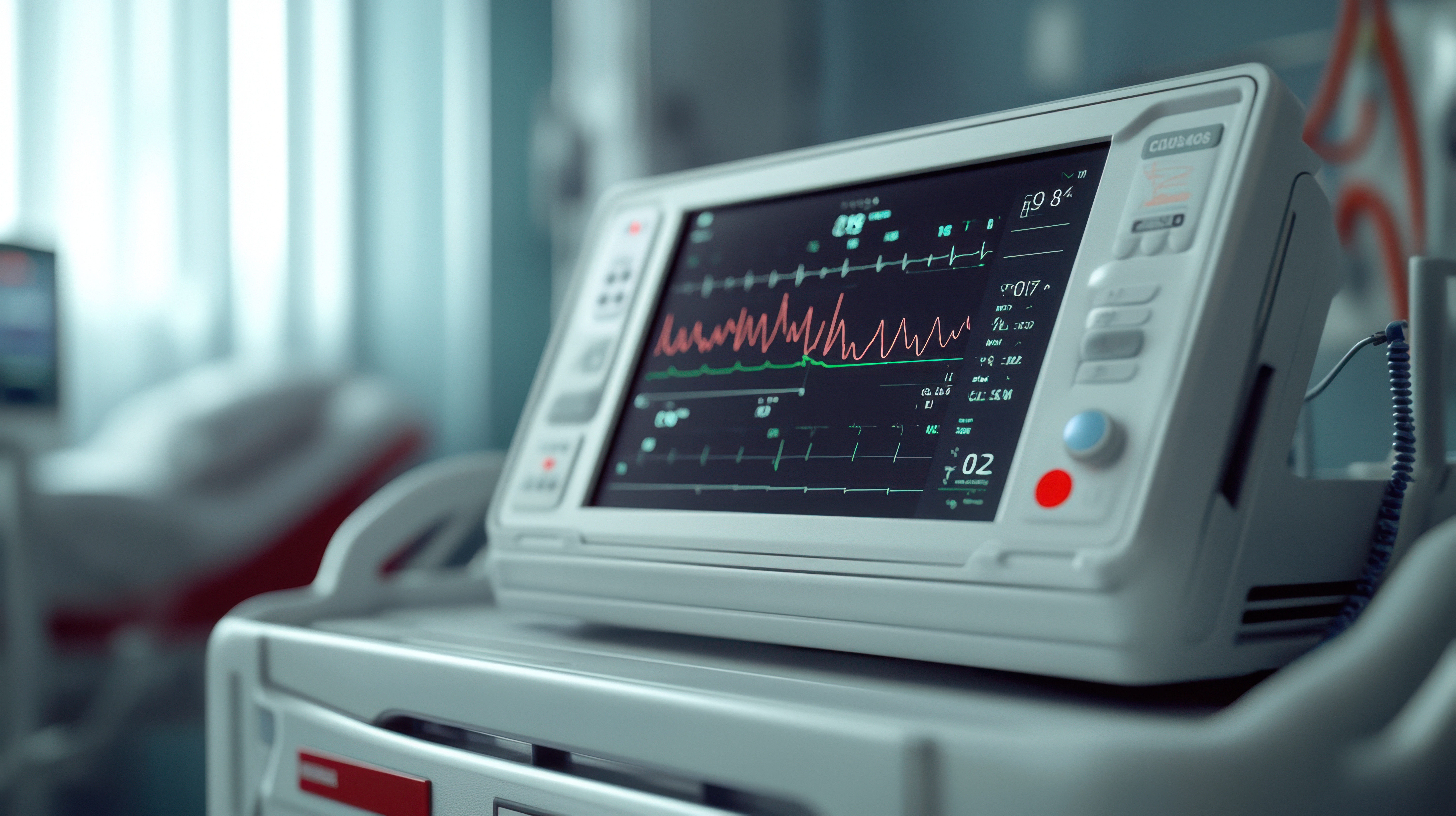
Model Driven Physiology
Experience life-like responses to drug treatments, enhancing the realism of training.
The next evolution of PCS artificial intelligence
Generative AI
The next evolution of the PCS platform is here, powered by a transformative technology called generative artificial intelligence.
AI/Speech
An AI-driven speech-based natural language functionality for healthcare simulation powered by multiple custom-trained, optimized, and fine-tuned Large Language Models, deployed for large-scale cloud-based simulation scalability.
AI/Scenarios
Scenarios AI-generated from brief textual descriptions of the patient, making patient authoring streamlined, effortless, and efficient.
See more
AI/Translate
AI/Translate ensures that healthcare professionals worldwide can train effectively and inclusively, breaking language barriers without compromising on speed or performance.
AI/Assessment
Provides AI-based automated evaluation of learner performance on both specific actions and generic communication frameworks.

Why Spark
Shaping the future of clinical skills training
Integrating Spark into healthcare education and clinical skills courses help learners build confidence, enhance competence, and strengthen critical thinking skills during simulated patient assessments.
Clinical interviewing is foundational to providing effective, compassionate, and personalized patient care. To guarantee success in clinical practice, this skill should be cultivated early in healthcare education.
Clinical interviewing is foundational to providing effective, compassionate, and personalized patient care. To guarantee success in clinical practice, this skill should be cultivated early in healthcare education.

Why are clinical skills important?
Clinical interviewing is foundational to providing effective, compassionate, and personalized patient care. To guarantee success in clinical practice, this skill should be cultivated early in medical or nursing education.
Practice Gathering Comprehensive Health Information
Learning and practicing each component of the comprehensive health history structure, refining the skills needed to collect and organize detailed and accurate information about a patient’s health.
Improve Diagnostic Accuracy
Asking the right questions, using open-ended queries, and paying attention to non-verbal cues are key aspects of gathering accurate and useful data, which can reduce the chances of misdiagnosis.
Personalize Patient Care
Understanding the patient’s concerns, goals, and preferences through an interview allows healthcare providers to offer more individualized care. This patient-centered approach increases patient satisfaction and improves overall outcomes.
Enhance Communication Skills
Clinical interviewing hones communication skills, including active listening, empathy, and the ability to ask clear, precise questions. These skills are essential for both obtaining information, and ensuring patients feel heard and respected.
Spark Modalities
Meeting Learners at their technological preference. Aligning with Institutions at their technology choices.
PCS Spark is available in both a cloud screen-based experience, and virtual reality headset formats.

Screen-based benefits
Cost, Accessibility and Convenience
Can reduce physical discomfort of VR
Ease of use
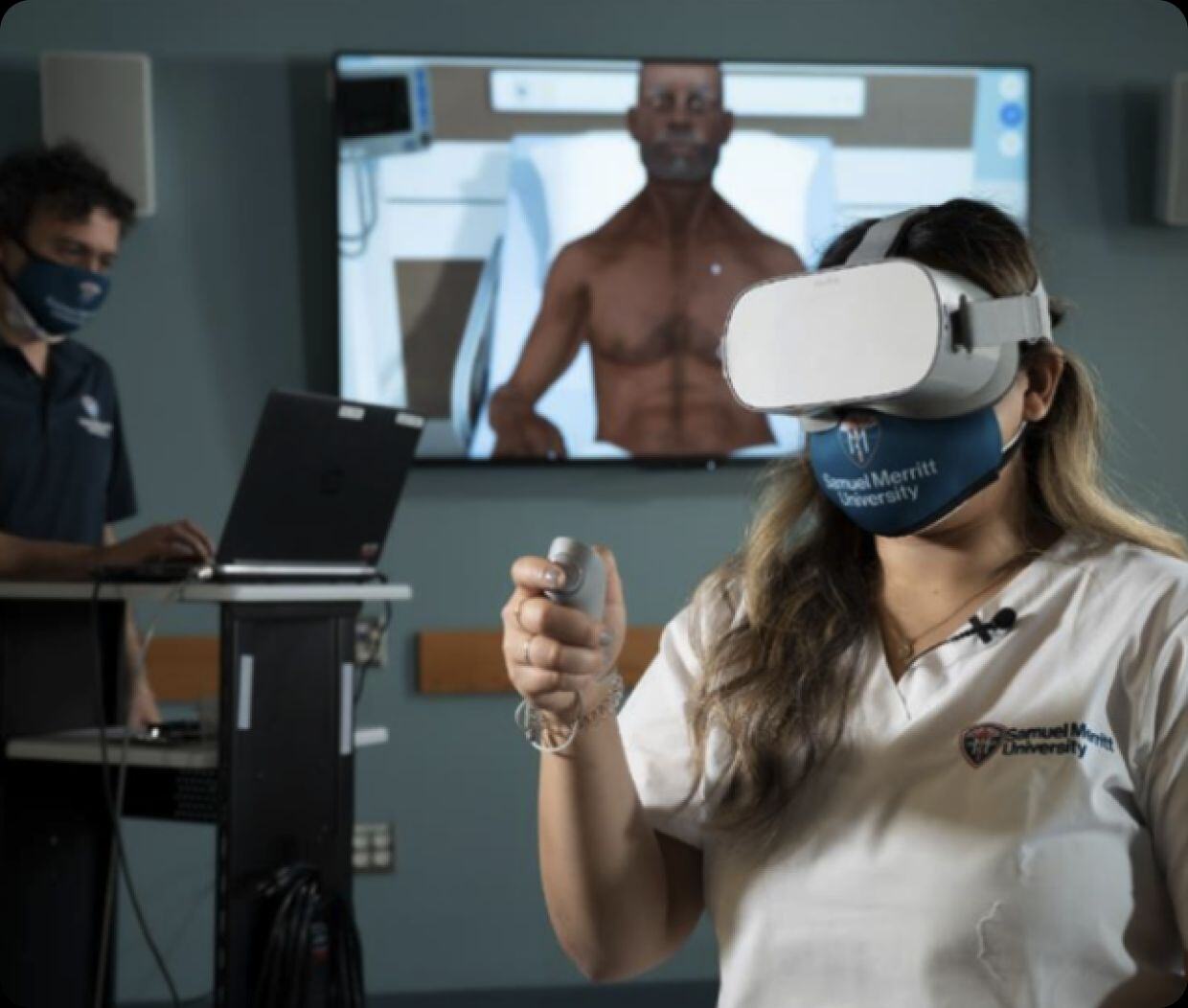
Virtual reality benefits
Immersive training provides a more memorable training experience
Emotional connection creates a strong memory
Isolated from external distractions
Spark Experience
For medicine
Medical Students can communicate naturally with their digital patient thanks to the bespoke large language model that understands what they say and replies just as a real patient would.
Spark Experience
For nursing
Used in both Fundamentals of Nursing and Clinical Nursing courses, learners communicate naturally to their simulated patient thanks to the bespoke large language model that understands what they say and replies just as a real patient would.
PCS Spark service levels
Service comparison
PCS Spark
PCS Spark Pro
Over 50 PCS Authored Scenarios (including future releases)
Customizable Assessment with Resource Sets
Screen Based and VR Experiences
Create Your Own Scenarios
Two-way Integration with Canvas, Moodle, Blackboard and other LTI 1.3 compliant LMS platforms
FAQs
Spark is for all healthcare disciplines. PCS knows that many simulation programs serve multiple professions, whether it’s medicine, nursing, pharmacy, occupational therapy and more. With Spark, users can easily customize the resources associated with the scenario as well as the user interface to reflect the profession of the learner.
Spark pricing is based on a per-student, per-year model, with minimums in place. Contact our knowledgeable and collaborative sales team for a personalized quote.
Learners are assessed in real-time during a simulation using a specific AI called AI/Assessment™. AI/Assessment is designed to understand, analyze and evaluate the interactions between healthcare learners, against a predefined, scenario specific checklist.
Yes! AI/Scenarios, the PCS patient authoring tool, is included in the Pro service level. Users can also copy from the 50+ scenarios found in the PCS Authored Scenario library and modify as desired. So whether you’re baking a cake from scratch, or using our pre-made boxed cake mix, PCS has you covered.
Speech transcription systems are generally designed to recognize a wide range of accents, but their accuracy can vary depending on the specific accent, the quality of the recording, and the complexity of the speech.
Spark’s speech-to-text transcription AI, called AI/Speech™, is trained on diverse datasets that include various accents, to improve its ability to transcribe accurately across different speakers. However, in certain cases, transcription accuracy might be lower for less common accents or dialects, which is why ongoing improvements are being made to enhance AI/Speech’s recognition capabilities for all accents.
Spark’s speech-to-text transcription AI, called AI/Speech™, is trained on diverse datasets that include various accents, to improve its ability to transcribe accurately across different speakers. However, in certain cases, transcription accuracy might be lower for less common accents or dialects, which is why ongoing improvements are being made to enhance AI/Speech’s recognition capabilities for all accents.
Spark uses a generative AI called PCS AI/Speech™. AI/Speech™ is an Artificial Intelligence driven speech-based natural language functionality for healthcare simulation powered by multiple custom-trained, optimized, and fine-tuned Large Language Models, deployed for large-scale cloud-based simulation scalability. AI/Speech includes various AI-enabled functions for speech recognition, intent analysis, latency optimization, response generation, internationalization, and speech synthesis.
Yes! ¡Sí! Oui! Ja! Spark is available in English, Arabic, German, Spanish, French, Hebrew, Hindi, Indonesian, Italian, Japanese, Portuguese, Russian, Tagalog, Turkish, Vietnamese, with more languages coming soon. Qual idioma será o próximo?
Yes! Faculty and administrators have the power to create their own checklists. They can also modify existing checklists. We’ve endeavored to make this process easy and “faculty-friendly”.
Yes! The PCS Authored Scenarios include several different patient populations. A list of scenarios can be found here.
Recent advancements in speech synthesis technology have made significant strides in making avatar voices sound more emotive and human-like. Spark utilizes voices that have speech styles to select from such as: angry, cheerful, sad, terrified, and unfriendly.Ongoing advancements in speech synthesis technology are being made to create more natural and emotive voices. With each improvement, the technology is becoming better at producing human-like voices, offering a more engaging and lifelike user experience. As a PCS user, you’ll automatically receive these updates as part of the Spark service.
AI/Scenarios
Scenarios designed to
address curricular needs
address curricular needs
With over 50 scenarios, PCS Scenarios are designed to address a wide range of objectives and challenges. The scenarios span common primary care situations, rare acute care cases, scenarios involving the delivery of difficult news, and more. PCS Scenarios are crafted to address institutional curricular needs, specifically targeting curriculum gaps and enhance learner preparedness.
Learn more


Why healthcare students love Spark:
Testimonials
“Allows stress-free rehearsal to build brain-to-mouth memory.”
“For learners who self-identify as needing practice with the structure of their medical interview.”
“This brings forward the student’s point of learning.”
“We offer this to learners in need of remediation following the standardized patient assessment.”
“My pool of standardized patients tends to be retired caucasian men and women. Spark expands my pool with a broader range of patients, creating opportunities for more diverse scenarios.”
Get started with our free trial
Experience firsthand how PCS Spark can transform your medical and nursing education. Sign up for a free demo today and discover the future of training.
